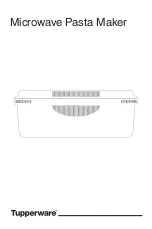
4. Clean the steam nozzle regularly but always with the appliance
unplugged and cold.
Remove the accessory from the steam pipe, Figure 6, and clean the
outside of the nozzle (3) with a soft damp cloth. The accessory
(3A) can be washed under the tap.
FROM CAPPUCCINO TO COFFEE AGAIN
Press the steam pressure switch (15) [
] to switch the steam off,
] to switch the steam off,
the indicator lamp (18) [
] will go out, allowing the coffee maker
to cool down.
Now, press the espresso button (13) [
] and, at the same time,
turn the steam control (6) to allow water to come out of the steam
nozzle so that pilot lamp (16) [ ] lights up again. Close the steam
control (6)
HOW TO PREPARE TEA OR HOT DRINKS
Press button (14) [
], pilot lamps (16) [
] and (17) [
] will
light. When the temperature lamp (16) [
] switches off, the co-
ffee maker will have reached the right temperature.
Place a cup below the steam nozzle (3) and press the coffee outlet
switch (14) [
]. At the same time, turn the steam control (6) so
that hot water comes out through the steam nozzle (3), Figure 5.
PREPARING COFFEE WITH SINGLE SERVING DISCS
Apart from ground coffee this coffee maker can also use single sa-
chets of coffee.
This option offers you the possibility of preparing delicious espres-
so coffee, quickly and with no mess. And because the sachets are
individually packed and hermetically sealed, this guarentees that
the coffee retains all of its flavour.
There are two types of coffee pad available on the market:
A- 60mm flexible (loose) coffee pads, suitable for drip-fed coffee
makers and percolators
B- 44mm packed coffee pads, specially for espresso machines
Your coffee maker will not operate correctly with 60mm flexible
coffee pads as they do not fit properly in the filter holder.
Always use packed coffee pads of approximately 44mm dia-
meter with this coffee maker, see figure 8.
These single sachets can be found at your usual retailers.
To use the coffee sachet function: Take the filter (9) and the bar-
cream disc (8) out of the filter holder (7) and place the special bar-
cream disc (11) and filter (12) onto the filter holder (7), Figure 7. Do
the same as with the ground coffee, placing the single serving disc
inside the filter.
CLEANING & MAINTENANCE
Make sure that the coffee maker is unplugged and cold before at-
tempting to clean it.
The moving parts can be washed in soapy water. Do not immerse
the coffee maker in water or any other liquid.
With a damp cloth periodically clean out the area where the filter
holder sits, so as to remove any coffee that may have become stuck
to it.
Be careful when removing the filter holder as there may be hot
water left inside it.
In order to prolong the life of the seal do not refit the filter holder if
the coffee maker is going to be stored away for prolonged periods.
Do not place any of the parts into the dishwasher.
DESCALING
The coffee maker should be descaled regularly. To do this, fill the
tank with a mix of three parts water to one part vinegar.
Operate the appliance for two cycles, including the steam pipe.
Following this, and to flush out any traces of vinegar, operate the
coffee maker for a further two cycles but with water only.
POSSIBLE FAULTS AND THEIR SOLUTION
The espresso coffee is not hot enough:
- Warm the cups up beforehand
- Descale the coffee maker
The flow rate is reduced considerably:
- Try putting less coffee in the filter.
- Use a coarser ground coffee, or pack the coffee down less.
- Descale the coffee maker.
The coffee spills out over the filter hol der.
- Make sure that the filter holder is fitted correctly.
- Clean the seal or replace it if necessary.
No coffee comes out or very slowly:
- Make sure that there is water in the tank and that this has been
fitted correctly.
- Make sure that the filter holder is fitted correctly
No steam comes out:
- Make sure that there is water in the tank.
- Make sure that the steam nozzle is not blocked.
The pump makes too much noise:
- Make sure that there is water in the tank and that this has been
fitted correctly.
REPAIRS
Should the appliance become defective do not hesitate in taking it
along to an Authorised Technical Service Centre.
ADVICE ON DISPOSAL
Our goods come in optimised packaging. This basically consists in
using non-contaminating materials which should be handed over to
the local waste disposal service as secondary raw materials.
Your local town council can give you information about how to dis-
pose of obsolete appliances.
CE7140.indd 7
4/10/05 16:01:19








































